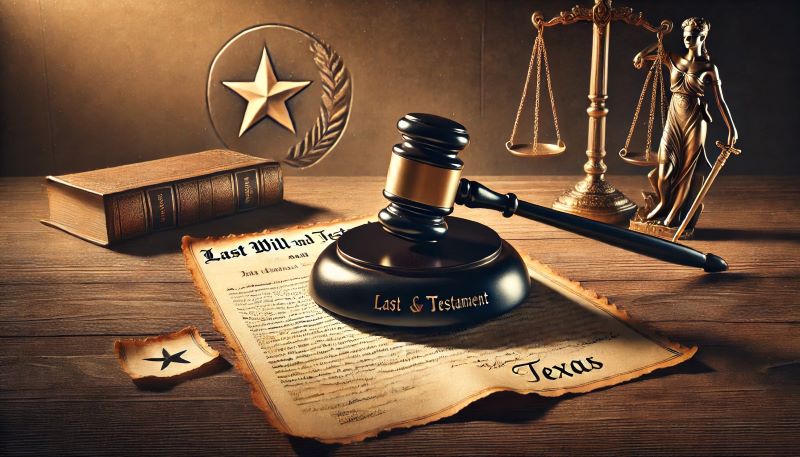
When it comes to challenging a will in Texas, not all disputes lead to successful outcomes. A valid will contest requires specific legal grounds and evidence. Below, we explore the primary reasons a will might be contested and the legal standards involved.
Technical Defects in the Will
One of the simplest ways to challenge a will is by proving that it fails to meet Texas's technical requirements. For a will to be valid in Texas:
- The Testator’s Signature: The will must be signed by the person whose estate is being distributed. If the signature is missing or is disputed (e.g., it does not match the testator’s other known signatures), this could invalidate the will.
- Witnesses: Texas law generally requires at least two credible witnesses. A notary can count as one of the witnesses under certain circumstances.
- Testamentary Intent: The document must express a clear intent to distribute assets. Simply listing assets or family members without instructions on how they should be distributed may not qualify as a valid will.
Lack of Capacity
The testator must have the mental capacity to create a will. According to Texas law, this means the individual must understand:
- That they are creating a will and its legal effect.
- The general nature and extent of their property.
- To whom they want to leave their property.
Issues such as dementia can complicate matters. Courts often rely on medical records and witness testimony to determine capacity. However, someone with early-stage dementia may still create a valid will during periods of lucidity.
Undue Influence or Duress
A will may also be challenged if it was created under undue influence or duress. Under Texas law, undue influence occurs when someone exerts pressure that overpowers the testator’s free will, resulting in a will that reflects the influencer’s desires rather than the testator’s.
Signs of undue influence include isolation of the testator, control over their finances, or dependence on the influencer for basic needs. Courts look for evidence that the influence subverted the testator’s mind at the time of signing and that the will would not have been executed without this influence.
Best Practices to Avoid Will Contests
If you’re assisting a loved one in drafting a will and there are potential concerns about challenges, consider recording the will’s execution. Video recordings can provide evidence that the testator was competent and acting of their own free will.
It is also important to choose witnesses carefully. Ensure the witnesses are neutral parties with no stake in the will’s outcome. It is never a good idea for a beneficiary in the will to also serve as a witness.
Consider hiring a lawyer for assistance with your estate planning needs. An attorney can help draft a clear and legally sound will that minimizes ambiguities.
All information provided on Silblawfirm.com (hereinafter "website") is provided for informational purposes only, and is not intended to be used for legal advice. Users of this website should not take any actions or refrain from taking any actions based upon content or information on this website. Users of this site should contact a licensed Texas attorney for a full and complete review of their legal issues.
